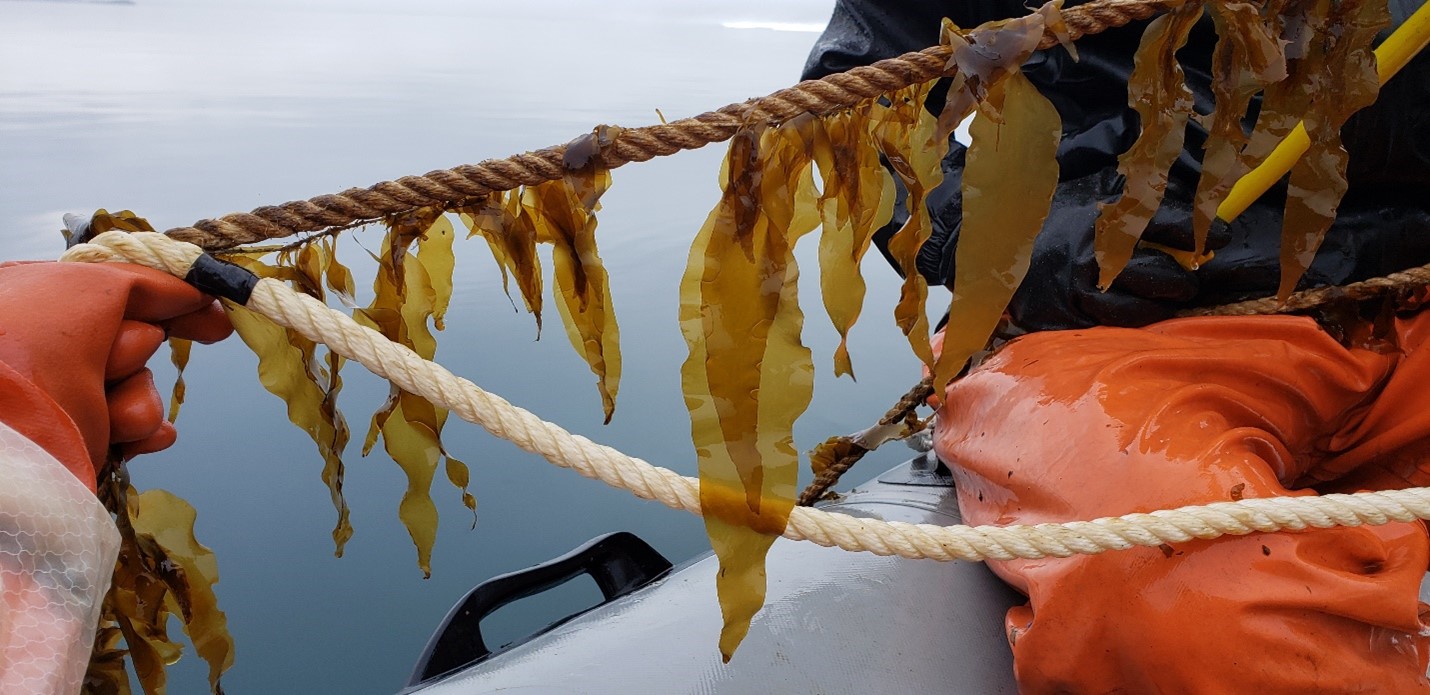Cultivating Resilience Through Kelp Farming in Eyak, Alaska
How a village is developing a resilient blue economy in Prince William Sound
Why Climate Resilience Is Important to Eyak
The Native Village of Eyak is dependent on local fish as important food source for the Village. Warming waters and ocean acidification have contributed to the decline in traditional foods and economic anchors in the region, such as harvesting kelp, herring, and salmon. To adapt to these changing environmental conditions and impacts, and to ensure they have a robust blue economy, the Village undertook several efforts to cultivate a robust mariculture effort that allows local food harvesting program while also training students to support this new economy.

Partnerships and Project Goals
In response to these changes to the ocean and the negative impacts on the local economy, the Village partnered with Ocean Rainforest for technical kelp farming assistance to develop a more resilient and sustainable blue economy through the introduction of mariculture in Prince William Sound. Mariculture is the practice of farming fish, plants, or other sea organisms. The project leveraged $200,000 from the North American Commission for Environmental Cooperation’s EJ4Climate Grant Program to catalyze the project (EPA is a member of the North American Commission for Environmental Cooperation).
The Village is also partnering with the Prince William Sound College to create a workforce development program for youth. The Marine Natural Resources Technician program trains students in mariculture techniques, safe boating operations, and all the necessary skills to join the mariculture workforce in Alaska. The development of this youth workforce will play a key role in ongoing efforts to build and maintain climate resilience.
Adaptation in Action
The process started with the construction of a kelp farm using over 20% of reclaimed materials that would otherwise end up in landfills or as marine debris, such as buoys and recycled fishing gear, while simultaneously creating a mariculture tribal youth training program that is aiding the Village’s mariculturists so that youth learn how to grow kelp in rural Alaska. To date, the Village community has planted over 15,000 feet of sugar kelp, resulting in over 13,000 pounds of kelp.
A portion of this kelp is going to the Village’s food security programs for distribution to tribal members and elders. With the aid of the partners at Ocean Rainforest, the remainder is being processed for livestock feed. The addition of kelp to livestock feed can reduce methane emissions from livestock, as kelp inhibits a key enzyme in the digestive process that produces methane. Kelp may also help to reduce greenhouse gas emissions associated with terrestrial agriculture and mitigate ocean acidification by absorbing carbon dioxide in the ocean. The Village is reinvesting all proceeds from this investment into mariculture activities.
The environmental and economic benefits provided by kelp farms include building habitat for marine life and enhancing food security for the somewhat isolated Eyak community. The Village is diligently working to become leaders of an industry that builds resilience to warming waters and environmental hazards, absorbs heat-trapping carbon dioxide gases, and creates innovative blue jobs for tribal members.
